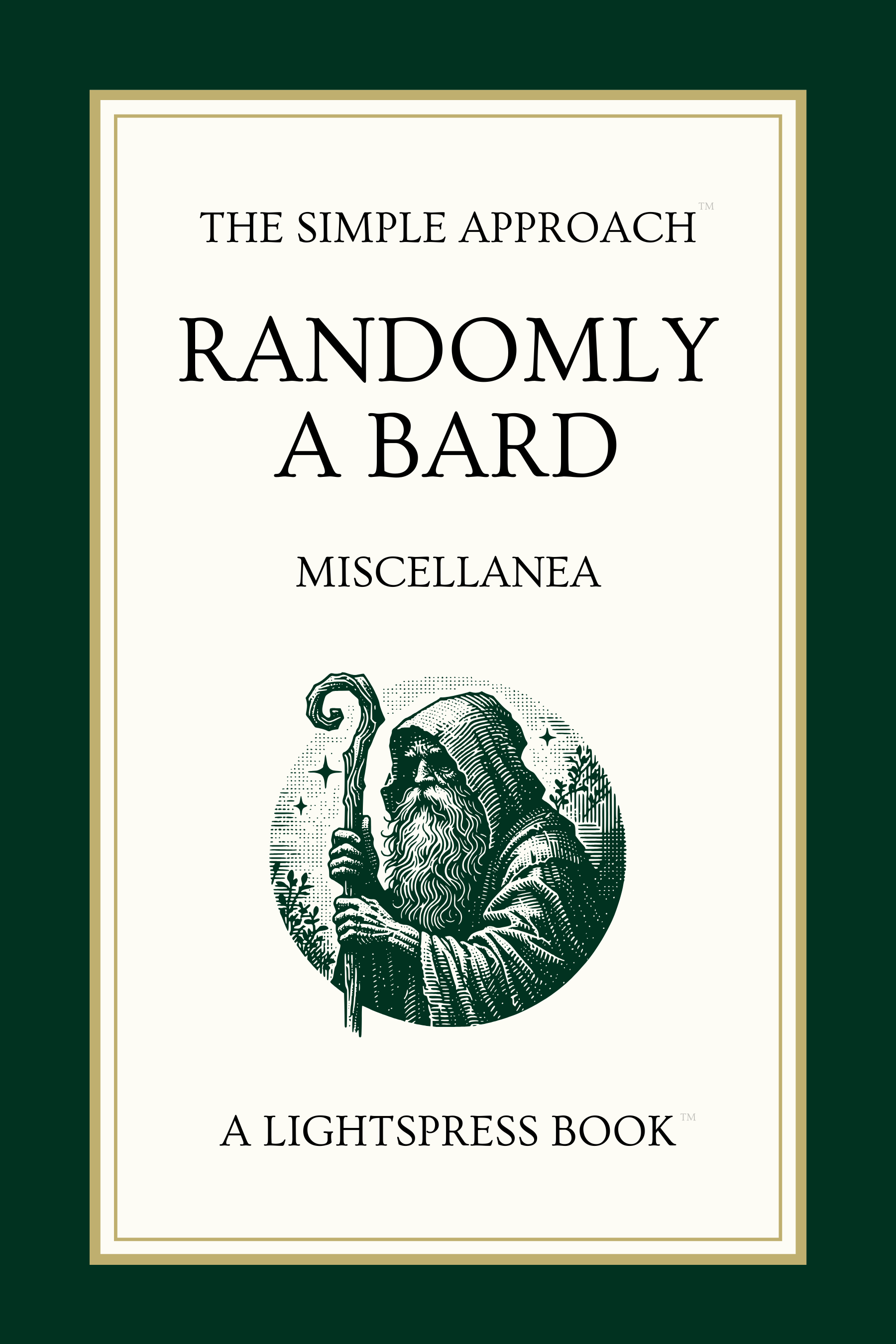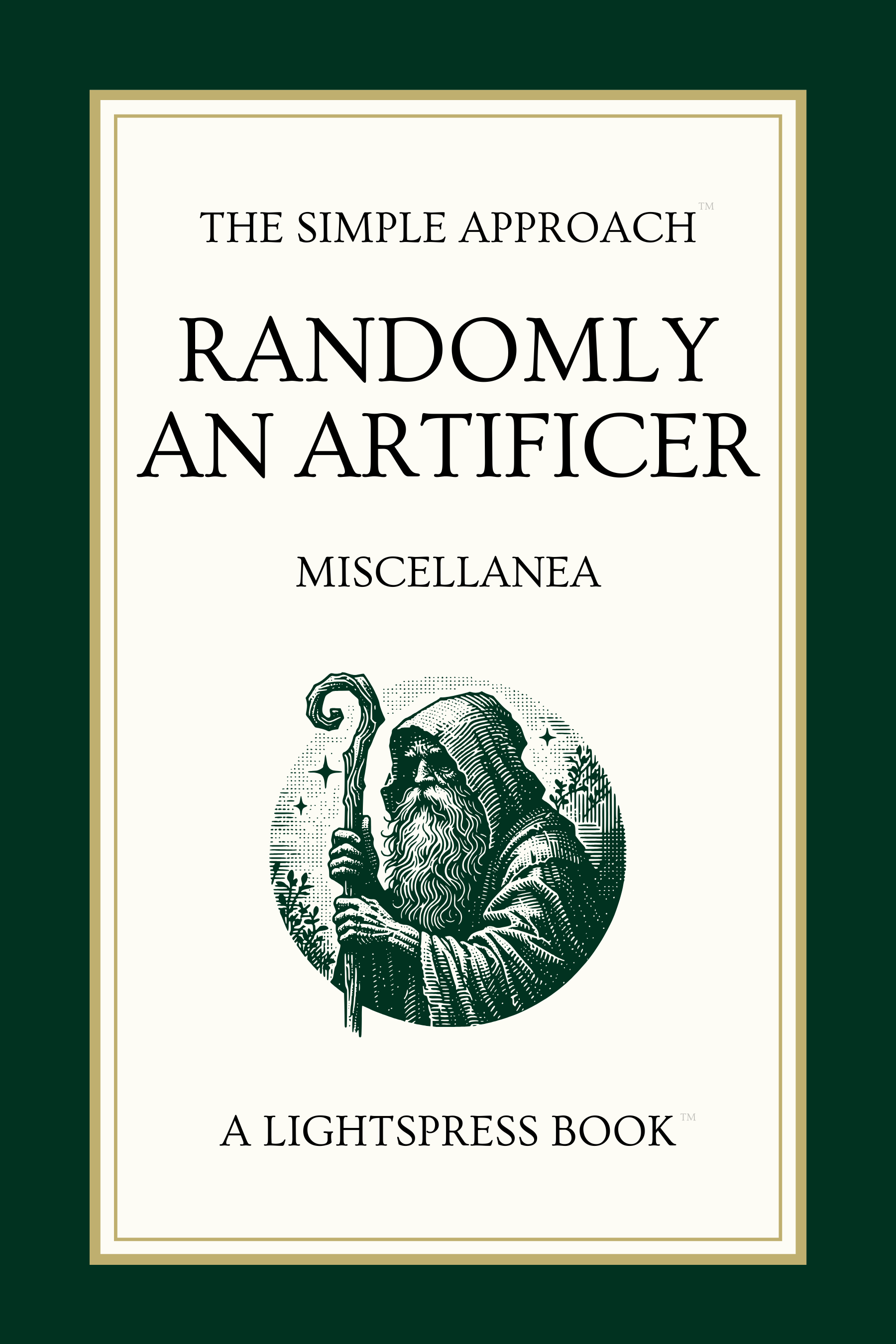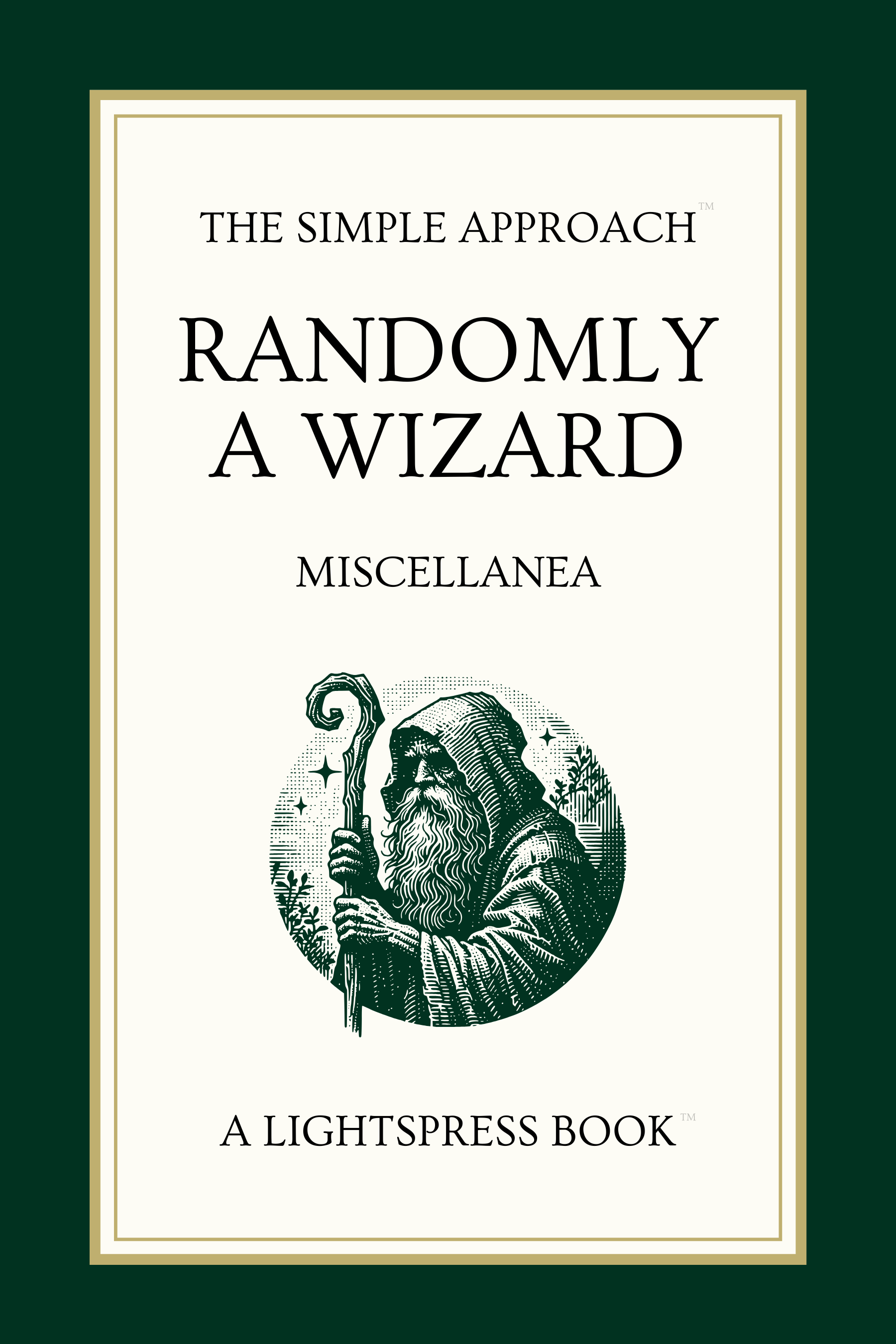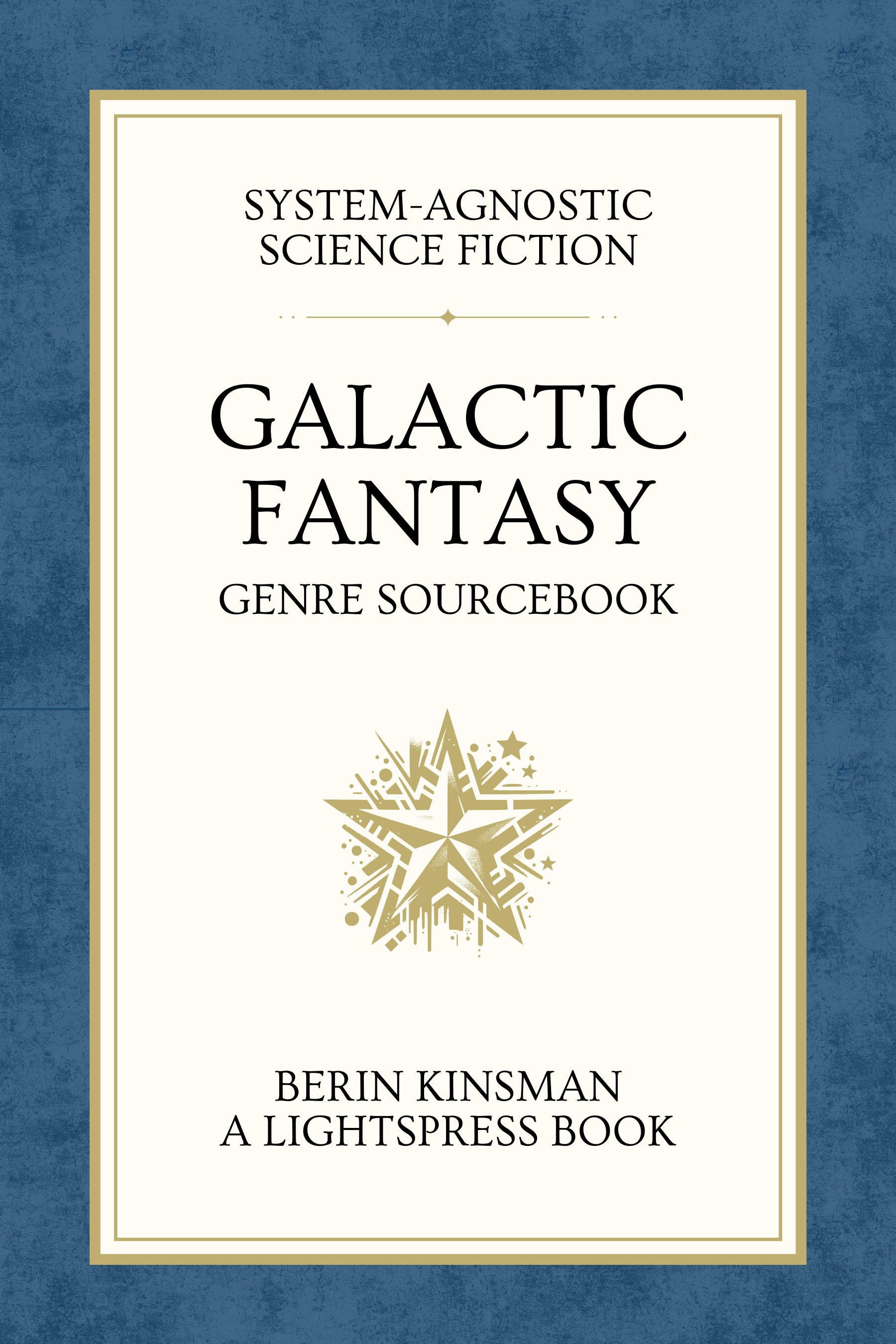Our Games and Sourcebooks
Lightspress makes narrative-first roleplaying tools.
Each book is designed to help you build compelling characters, grounded worlds, and storylines that grow through consequence. You can use the Simple Approach system or bring these tools into whatever you already play.
The Simple Approach
This is the core framework behind everything we make. It uses traits, story beats, and narrative pressure to create scenes that matter. There are no subsystems, no math puzzles, and no rule lookups. Just story, structure, and momentum.
→ [Learn More About The Simple Approach]

Fantasy Roleplaying
Fantasy is where myths take shape, magic has meaning, and the world wants something from your characters. These tools help you shape stories about legacy, morality, and transformation. Subgenres include heroic fantasy, cozy fantasy, and folk horror.
→ [Explore Fantasy Tools]
Modern Roleplaying
Modern stories live in the tension between daily life and personal pressure. These tools are grounded in character choice, social friction, and the weight of now. Use them for drama, mystery, or any story that belongs to this century.
→ [Explore Modern Tools]
Occult Roleplaying
Occult stories follow what leaks through. These tools explore rituals, secrets, and the emotional cost of knowledge. Use them to build quiet horrors, tangled conspiracies, or inherited burdens that shape the present.
→ [Explore Occult Tools]
Science Fiction Roleplaying
Science fiction reveals what happens when knowledge outpaces culture. These tools help you create stories about survival, resistance, and the consequences of invention. Use them for starships, wastelands, or internal worlds made external.
→ [Explore Science Fiction Tools]
Historical Roleplaying
Historical roleplaying is about perspective. These tools help you center people, tone, and consequence inside real-world eras without turning history into trivia. Use them for grounded fiction shaped by time and place.
→ [Explore Historical Tools]
Literary Roleplaying
Literary stories focus on transformation, emotion, and consequence. These tools help you tell stories about choice, conflict, and meaning through character, dialogue, and internal stakes.
→ [Explore Literary Tools]
































![Historia Daemonum [Revised]](https://images.squarespace-cdn.com/content/v1/65b16959d3fcc741e08a13c8/a1039166-3973-4ac1-9626-b0c77ac85934/HISTORIA+DAEMONUM+LPO250209.png)






